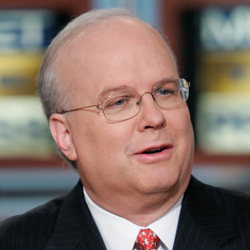
Poster child for brain-dead TV-buying, 2012 edition
A couple of recent articles have highlighted a flood of money entering Senate races via “independent expenditure” groups, some of them narrowly focused:
By the fall, political operatives expect that candidate allies will try to establish such PACs in nearly every major Senate race. Strategists debate the strengths and weaknesses of these localized groups, but they could prove critically important to a plethora of key Senate matchups.
The big dog, though, is the Koch-funded Americans for Prosperity, which is already running ads targeting Senate Democrats well over six months before the election. Dangerous…remember those TV ads Obama ran in battleground states in the summer of 2012, which many credit with tarnishing Mitt Romney’s brand? If these have a similar effect, they could hurt Democrats in a serious way.
Of course, the plethora of outside groups may just cause trouble — as I describe in an upcoming piece in Campaigns & Elections, Democratic field canvassing told the McAuliffe 2013 Virginia campaign that some of the TV ads run by Republican IE groups were actually hurting Ken Cuccinelli, not helping. Plus, there’s the competition for cash:
And behind the scenes, they’ll add to the tensions flaring among an increasingly crowded field of third-party groups, all desperate to attract big donors.
“It’s going to make it a lot more chaotic,” said Mark Longabaugh, a Democratic strategist with experience running outside groups. “Just like everything that happens in politics, some of it could be good and some if it could be bad.”
My question: will any of this outside money go online, or will it simply end up being dumped into run-of-the-mill TV ads? Campaigns have so many options OTHER than TV these days, from list-building to field organizing to highly targeted online advertising, but will the people running these outside groups take advantage of them? Online advertising (if targeted correctly) would let them hit the right voters with the right messages through cost-effective channels, for instance, and it would also generate data (click rates, conversion rates, etc.) that would help the groups evaluate how well their messaging works with different demographics. Buying ads on the evening news broadcasts is easy, but in the current media environment, is it cost-effective?
My suspicion is that many of these groups will be run by The Usual Suspects, i.e., consultants who’ve been kicking around politics for a while and are used to doing things the old-fashioned media-buyer way. In that case, they’re likely throw money at poorly targeted TV campaigns rather than spend time and resources building up a robust field operation or investing in data-modeling and voter targeting. Of course, field organizing and online advertising don’t REPLACE television ads, they complement them — canvassing and online ads can reinforce the same messages voters are seeing on their TV screens, as well as help to evaluate their effectiveness. But that kind of integrated political operation takes a certain subtlety that some veterans of the broadcast era seem to lack….
Watch this space — let’s see who manages to get creative, who manages to be effective, and whether or not they’re the same people.
– cpd
